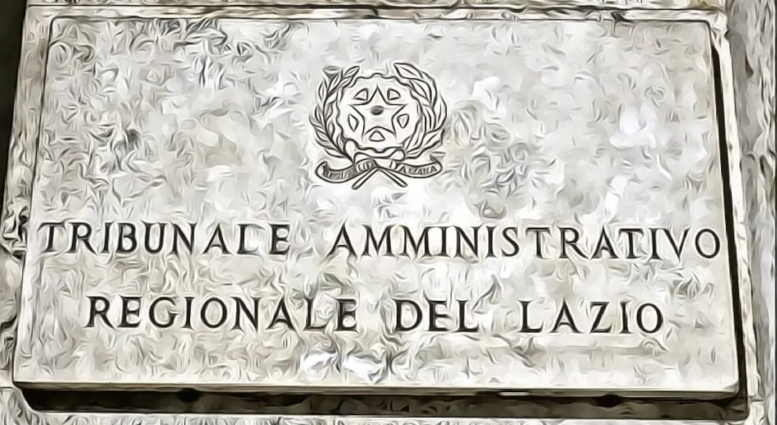In yet another blow to Italy’s beleaguered hemp sector, the Lazio Regional Administrative Court (TAR) has rejected an appeal by stakeholders challenging the government’s restriction of oral CBD products, solidifying a ban that has drawn sharp criticism from legal and trade experts.
Italy has now effectively banned all oral compositions of CBD derived from the cannabis plant, including extracts from flowers, leaves, or stalks, limiting them strictly to prescription-only pharmaceutical use. The decision expands prior restrictions, which only applied to flower-derived CBD.
“In light of uncertain but credible risks to public health, precautionary regulatory intervention is justified,” the court wrote in its decision, affirming the government’s right to act in the absence of definitive scientific consensus. Judges cited the Ministry of Health’s evaluations, based on reports from the National Health Institute (ISS) and the Higher Health Council (CSS), which raised concerns over liver toxicity, psychiatric effects, and poor product labeling among other risks.
‘Precautionary principle’
The court’s decision rests on the “precautionary principle,” a European legal doctrine that allows governments to regulate preventively when scientific uncertainty exists regarding health risks. It reverses earlier rulings in which the same court had twice suspended the government’s CBD decree due to a lack of scientific evidence.
The controversial decree, originally issued June 27, 2024, was reintroduced by the Ministry of Health, reviving a shelved measure originally proposed in 2020. The original decree had been paused for scientific review and never implemented. In August 2023, the ministry reinstated the ban without updated opinions from scientific bodies, prompting legal challenges that led to its temporary suspension in October 2023 and again in September and October 2024.
Despite these suspensions and contrary scientific opinion—including a report by La Sapienza University concluding that CBD is non-psychoactive and does not cause dependency—the TAR ultimately upheld the government’s right to restrict CBD.
Against EU law
Industry advocates decried the ruling as a final blow to the CBD sector after the government of Prime Minister Giorgia Meloni bypassed Parliament April 8 by invoking emergency powers to enact a “Security Decree” that classifies industrial hemp flowers as narcotics, regardless of THC content. That measure, part of Article 18 of Italy’s broader Security Bill, criminalizes the cultivation, sale, processing, and possession of hemp flowers and cannabinoids like CBD, CBG, and CBN.
According to hemp trade groups, the decree threatens up to 30,000 jobs and more than 3,000 businesses in a sector estimated to be worth nearly €2 billion. The government’s move drew immediate legal criticism for bypassing legislative debate, violating Italy’s Constitution, and potentially breaching European Union law.
“The reasons for the intervention raise strong doubts of constitutionality, as well as of compatibility with European Union legislation,” attorneys Giacomo Bulleri and Carlo Alberto Zaina, who represent trade group Federcanapa, said in a statement.
Under Article 77 of Italy’s Constitution, the Meloni government declared the measure a decree law in a case of “urgency and necessity.” While the measure is temporarily enforceable, lawmakers have 60 days to ratify it. The final decision rests with President Sergio Mattarella.
Industry pushback
Meanwhile, a broad coalition of cannabis advocacy groups—including Canapa Sativa Italia, Sardinia Cannabis Association, Resilienza Italia Onlus, and Imprenditori Canapa Italia—have launched a campaign to challenge the ban. They argue that both the CBD and flower prohibitions are unconstitutional, economically destructive, and contrary to the free-movement-of-goods principle established under EU law.
“The courageous hemp traders, who abide by the rules every day and ensure a transparent and safe market, should not fear the state but receive its support,” Mattia Cusani of Canapa Sativa Italia told the European Parliament’s Petitions Committee during a March 17 hearing in Brussels.
The European Commission has so far not intervened, although it has formally requested a response from the Italian government, triggering a 90-day period of evaluation.
EU must intervene
Italy’s conflict over hemp regulation stretches back nearly a decade. The country legalized the cultivation of hemp with THC under 0.2% (and up to 0.6% tolerance) in 2016, leading to a boom in “cannabis light” products. However, successive governments have attempted to roll back that progress through reclassification, restrictive circulars, and selective enforcement.
In 2022, the State-Regions Conference moved to classify hemp as a medicinal plant—a step that was overturned in court. Last year, regulators confused the market further by threatening to restrict even cosmetic CBD applications, despite the compound’s inclusion in the EU’s Cosing database since 2021.
With the latest rulings and decrees, industry leaders now fear the complete dismantling of the Italian hemp ecosystem, unless lawmakers or European authorities intervene.
Italy has now effectively banned all oral compositions of CBD derived from the cannabis plant, including extracts from flowers, leaves, or stalks. Read More


